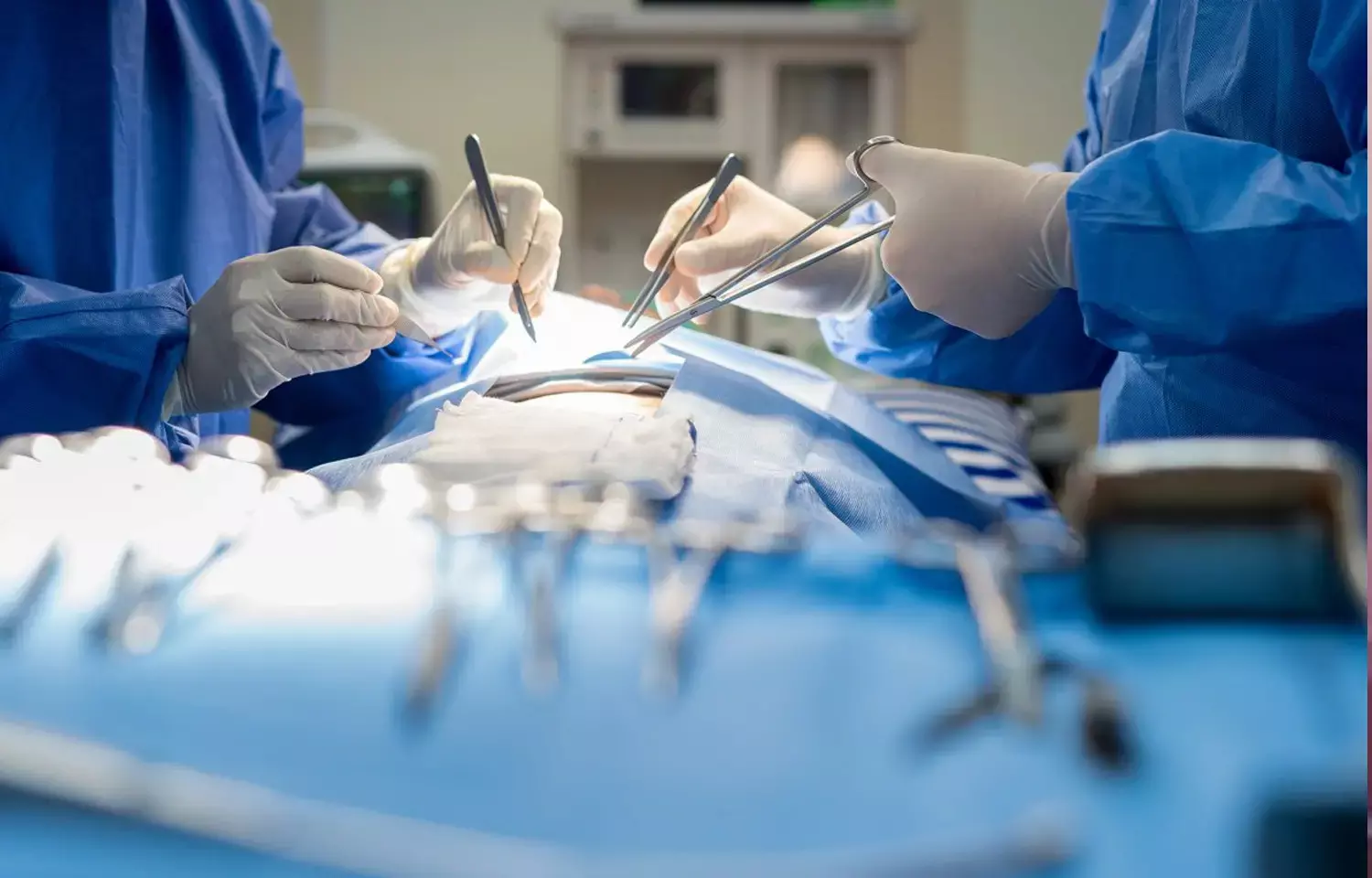- Home
- Medical news & Guidelines
- Anesthesiology
- Cardiology and CTVS
- Critical Care
- Dentistry
- Dermatology
- Diabetes and Endocrinology
- ENT
- Gastroenterology
- Medicine
- Nephrology
- Neurology
- Obstretics-Gynaecology
- Oncology
- Ophthalmology
- Orthopaedics
- Pediatrics-Neonatology
- Psychiatry
- Pulmonology
- Radiology
- Surgery
- Urology
- Laboratory Medicine
- Diet
- Nursing
- Paramedical
- Physiotherapy
- Health news
- Fact Check
- Bone Health Fact Check
- Brain Health Fact Check
- Cancer Related Fact Check
- Child Care Fact Check
- Dental and oral health fact check
- Diabetes and metabolic health fact check
- Diet and Nutrition Fact Check
- Eye and ENT Care Fact Check
- Fitness fact check
- Gut health fact check
- Heart health fact check
- Kidney health fact check
- Medical education fact check
- Men's health fact check
- Respiratory fact check
- Skin and hair care fact check
- Vaccine and Immunization fact check
- Women's health fact check
- AYUSH
- State News
- Andaman and Nicobar Islands
- Andhra Pradesh
- Arunachal Pradesh
- Assam
- Bihar
- Chandigarh
- Chattisgarh
- Dadra and Nagar Haveli
- Daman and Diu
- Delhi
- Goa
- Gujarat
- Haryana
- Himachal Pradesh
- Jammu & Kashmir
- Jharkhand
- Karnataka
- Kerala
- Ladakh
- Lakshadweep
- Madhya Pradesh
- Maharashtra
- Manipur
- Meghalaya
- Mizoram
- Nagaland
- Odisha
- Puducherry
- Punjab
- Rajasthan
- Sikkim
- Tamil Nadu
- Telangana
- Tripura
- Uttar Pradesh
- Uttrakhand
- West Bengal
- Medical Education
- Industry
Alcoholic Chlorhexidine gluconate ideal option for performing clean surgery: Study

Infection is the most common and expensive surgical consequence. The relative effectiveness of Chlorhexidine Gluconate (CHG) and vs Povidone-iodine (PVI)-based skin antiseptics in clean surgery is unknown.
According to one research, alcohol formulations of 4%–5% CHG appear to be safe and twice as efficient as PVI (alcoholic or aqueous solutions) in avoiding infection following clean surgery in adults.
This study was conducted by Ryckie G. Wade & team and the findings of this work are published in Annals of Surgery of December 2021 volume.
Preoperative skin antisepsis in clean surgery is fraught with uncertainties. Network meta-analysis gives more exact estimates than traditional pairwise meta-analysis and may rank therapies in terms of efficacy, which can help influence therapeutic decisions.
Researchers looked for randomized or nonrandomized trials that compared the effect of different CHG and PVI preparations on the dichotomous outcome of surgical site infection. They included research on people who had clean surgery. They also rejected research using indwelling vascular catheters, blood samples, combination antiseptics, or sequential antiseptic treatments. To estimate the relative efficacy of interventions using relative risks, a network meta-analysis was performed.
The results of this study stated as follows:
1. This analysis includes 17 trials that compared 5 antiseptics in 14,593 people.
2. Overall, the risk of surgical site infection was 3%. The most effective antiseptic was alcoholic CHG 4 percent–5%, which reduced the risk of surgical site infection by half when compared to aqueous PVI [RR 0.49 (95% confidence interval 0.24, 1.02)] and also to alcoholic PVI, though the uncertainty was higher [RR 0.51 (95% confidence interval 0.21, 1.27)].
3. Adverse events associated with antiseptic application were only observed in patients who had been exposed to PVI.
In conclusion, The findings of this study agree with the literature on contaminated and clean-contaminated surgery, and they support international guidelines that promote the use of alcoholic CHG for preoperative skin antisepsis.
Reference:
Wade, R. G., Burr, N. E., McCauley, G., Bourke, G., & Efthimiou, O. (2020). The Comparative Efficacy of Chlorhexidine Gluconate and Povidone-iodine Antiseptics for the Prevention of Infection in Clean Surgery. In Annals of Surgery (Vol. 274, Issue 6, pp. e481–e488). Ovid Technologies (Wolters Kluwer Health). https://doi.org/10.1097/sla.0000000000004076
Medical Dialogues consists of a team of passionate medical/scientific writers, led by doctors and healthcare researchers. Our team efforts to bring you updated and timely news about the important happenings of the medical and healthcare sector. Our editorial team can be reached at editorial@medicaldialogues.in.
Dr Kamal Kant Kohli-MBBS, DTCD- a chest specialist with more than 30 years of practice and a flair for writing clinical articles, Dr Kamal Kant Kohli joined Medical Dialogues as a Chief Editor of Medical News. Besides writing articles, as an editor, he proofreads and verifies all the medical content published on Medical Dialogues including those coming from journals, studies,medical conferences,guidelines etc. Email: drkohli@medicaldialogues.in. Contact no. 011-43720751


